Global South
Wednesday, July 18
Venue: University of Vienna, AudiMax, Dr. Karl-Lueger-Ring 1 - renamed "Universitätsring", 1010 Vienna
Keynote:
Contemplating the world in-from the South. The circulation of ideas among peripheral regions: History and current situation
Keynote Speaker: Eduardo Devés Valdés, Instituto de Estudios Avanzados (IDEA) /Universidad Santiago de Chile
Wednesday, July 18, 2.30 p.m. - 3.30 p.m.
During the last decades, the issue of contemplating in-from the peripheries: contemplating the world and contemplating the peripheries of the world, is becoming increasingly more present. The presence of China, India and Brazil, inter alia, has accentuated this interest.
In fact, it is not only about the importance of this or that agent or state in the global space, but, in this case, about the ways in which an awareness (and fraternity) on being periphery has been raised, as well as an own contemplation of these regions which is trying to liberate itself from this condition.
The modernity as European expansion is the establishment of a global world with centre and periphery. The intellectuality of the different regions of the world, where the West has made itself present, has been reacting in very similar ways. One part proposed: we should be like the centre, whereas the other one: we should be ourselves, deepening our identity. In this process, there should be highlighted a set of thinking tendencies and intellectual networks that circulated ideas, from the centre towards the peripheries and among these: Latin American enlightenment, peripheral romanticism, neo-salafism, slavophilism, pan-asiatism, pan-africanism, anti-imperialism, eurasism, negritude, under-development, dependentism, liberationism, subalternity and post-colonialism, inter alia.
On this occasion, it is specifically about presenting the awareness raising on being periphery, by taking as frame of reference the thinking of Latin America and its “meeting places” with the one of other peripheral regions.
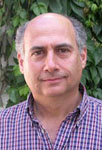
Eduardo Devés Valdés
Eduardo Devés Valdés considers himself both a researcher and an essayist. His topics embrace the South-to-South circulation of ideas, intellectual networks and peripheral thought. He currently works as a researcher at the Instituto de Estudios Avanzados (IDEA) of the Universidad Santiago de Chile (USACH) and teaches as professor for the doctoral programme of Estudios Americanos at the same university. He is the author of: O pensamento africano sul-saariano, Conexoes e paralelos con o pensamento latino-Americano e Asiático. Um esquema (CLACSO/EDUCAM 2008); El pensamiento latinoamericano en el siglo XX , 3 vols. (Biblos/DIBAM 2000–2004). For more information see: idea.usach.cl.
Round Table
Global South – Issues and Perspectives
Wednesday, July 18, 3.30 p.m. - 5 p.m.
The purpose of this round table is for Americanists to look beyond the Americas, to the wider global South, and to discuss issues of current concern — such as the rise of emerging societies (or the ‘rise of the rest’), the repercussions of the economic crisis in the North Atlantic region, and the implications of all this for the dynamics in developing countries. The discussants of this round table will introduce different academic perspectives in debating the Global South (sociology, economy, philosophy, cultural and development studies).
Roundtable Participants
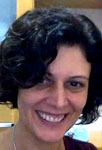
Celi Scalon, Universidade Federal do Rio de Janeiro
Celi Scalon is a sociologist. Her main fields of interest are social inequality and stratification (with a special emphasis on both class and gender differences) and public policies. She is Professora Titular at the Universidade Federal do Rio de Janeiro (UFRJ). From 2009 to 2011 she acted as president of the Sociedade Brasileira de Sociologia (SBS). Recent Key publications include: Social Stratification in the BRIC countries (co-edited in Chinese with Peilin, Gorshkov and Sharma, Social Sciences Academic Press, 2011); Desigualdade, pobreza e políticas públicas: notas para um debate, in: Contemporânea v. 1 (2011) p. 49-68; Ensaios de Estratificação (Argumentum, 2009).
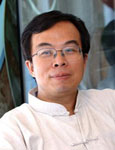
Huang Ping, Chinese Academy of Social Sciences / Institute of American Studies
Huang Ping is sociologist and americanist. He is Senior Research Professor, and since 2006, the Director General of the Institute of American Studies of the Chinese Academy of Social Sciences (CASS) and Director of the Centre for World Politics at the same institution. He holds a number of positions in Chinese and international academic associations or organizations. His research covers fields such as globalization, development, and migration. Recent publications include: China-US Relations: towards Maturity, in: The International Spectator, 44/2 (2009), 9-16; Development: Understanding and Misunderstanding (People's University Press, 2006); Our Era (co-author; Central Translation Press, 2007); China and Globalization (editor; Social Science Documentation Press, 2005); Poverty Reduction among Migrants in China (editor; Social Science Documentation Press, 2006).
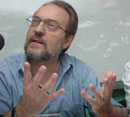
Horacio Cerutti Guldberg, Universidad Nacional Autónoma de México
Horacio Cerutti Guldberg is a philosopher. He is professor for Latin American philosophy, history of ideas, and political philosophy at the Universidad Nacional Autónoma de México (UNAM) where he is based at the Centro de Investigaciones sobre América Latina y el Caribe (CIALC). He has been honored as a Doctor Honoris Causa by the Universidad Ricardo Palma (Lima) and the University of Warsaw. He is one of the major protagonists of the ‘philosophy of liberation’-school. He has extensively published on Latin American philosophy and history of ideas. Among his more recent publications are: Doscientos años de pensamiento filosófico Nuestroamericano (Ediciones desde abajo, 2011); Filosofando y con el mazo dando (Editorial Biblioteca Nueva / UACM, 2009); Filosofía de la liberación latinoamericana (Fondo de Cultura Económica, 3a ed. 2006).
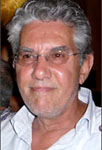
Jan Nederveen Pieterse, University of California, Santa Barbara
Jan Nederveen is the Mellichamp Professor of Global Studies and Sociology in the Global and International Studies Program at the University of California at Santa Barbara. He specializes in globalization, development studies and cultural anthropology. He currently focuses on new trends in twenty-first century globalization and the implications of economic crisis. Some of the recent publications include: Thinking plural: modernities, capitalisms (in preparation); Development Theory: Deconstructions/ Reconstructions London (Sage and TCS books 2010, 2nd edition), Globalization and Emerging Societies: Development and Inequality (Palgrave Macmillan, 2009, 2nd edition, co-edited with Boike Rehbein).
Moderation: David Mayer, University of Vienna
David Mayer, General Secretary of the 54 ICA, is a historian specialized in transnational contemporary history. He studied History and Development Studies at the University of Vienna. In 2011 he completed his PhD-research on the history of Marxist historiographic debates in Latin America in the ‘long 1960s'. He has spent lengthy research stays in Latin America and various visiting scholarships at different institutions in Europe and the Americas. His main research interests are the history of historiography, the history of Marxism and left-wing intellectuals, the history of social movements, and politics of history.
